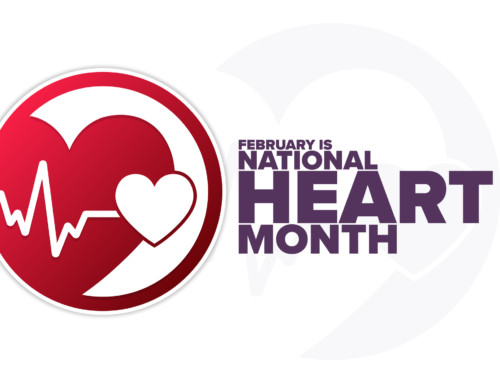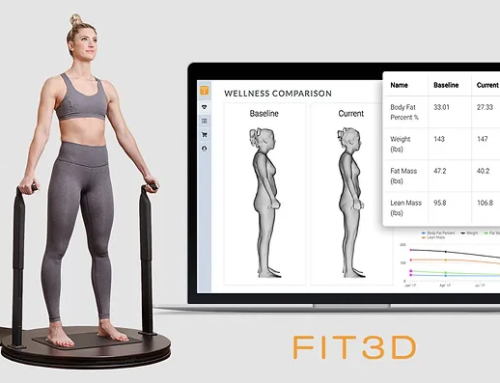As you age, your risk for certain diseases and health conditions changes. Regular check-ups and screenings help to catch warning signs early on – the earlier a health issue is detected, the easier it is to treat. To keep yourself in top shape, here’s a handy guide to important medical tests and screenings you should get throughout your life.

Share This Infographic On Your Site
In Your 20’s
Women:
- Eye Exam – every 1-2 years – tests for vision, glaucoma, and macular degeneration
- Hearing Test – every 10 years – tests ear function
- Blood Pressure Screening – every 2 years – tests risk for heart conditions
- Skin Exam – yearly – tests for signs of skin cancer
- Pelvic Exam – yearly – checks for signs of cancer
- Pap Smear – every 3 years – tests risk for cervical cancer
Men:
- Eye Exam – every 1-2 years – tests for vision, glaucoma, and macular degeneration
- Hearing Test – every 10 years – tests ear function
- Blood Pressure Screening – every 2 years – tests risk for heart conditions
- Skin Exam – yearly – tests for signs of skin cancer
- Testicular Exam – yearly – tests for signs of testicular cancer
In Your 30’s
Women:
- Blood Pressure Screening – every 2 years – tests risk for heart conditions
- Skin Exam – yearly – tests for signs of skin cancer
- Pelvic Exam – yearly – checks for signs of cancer
- Pap Smear – every 3 years – tests risk for cervical cancer
- Blood Glucose Test – every 5 years – tests risk for diabetes
- Cholesterol Screening – every 5 years – tests risk for heart disease
- Thyroid Stimulating Hormone Test – every few years – tests for underactive or overactive thyroid
Men:
- Blood Pressure Screening – every 2 years – tests risk for heart conditions
- Skin Exam – yearly – tests for signs of skin cancer
- Testicular Exam – yearly – tests for signs of testicular cancer
- Blood Glucose Test – every 5 years – tests risk for diabetes
- Cholesterol Screening – every 5 years – tests risk for heart disease
In Your 40’s
Women:
- Blood Pressure Screening – every 2 years – tests risk for heart conditions
- Skin Exam – yearly – tests for signs of skin cancer
- Pelvic Exam – yearly – checks for signs of cancer
- Pap Smear – every 3 years – tests risk for cervical cancer
- Blood Glucose Test – every 3 years – tests risk for diabetes
- Cholesterol Screening – yearly – tests for signs of heart disease
- Bone Density Testing – every 3 years – tests for signs of osteoporosis
- Mammogram – yearly – tests for signs of breast cancer
- Ovarian Screening – every 3 years for post-menopausal women – tests for signs of ovarian cancer
Men:
- Blood Pressure Screening – every 2 years – tests risk for heart conditions
- Skin Exam – yearly – tests for signs of skin cancer
- Testicular Exam – yearly – tests for signs of testicular cancer
- Blood Glucose Test – every 3 years – tests risk for diabetes
- Cholesterol Screening – yearly – tests for signs of heart disease
- Prostate Exam – if high risk of prostate cancer
In Your 50’s
Women:
- Blood Pressure Screening – every 2 years – tests risk for heart conditions
- Pelvic Exam – yearly – checks for signs of cancer
- Pap Smear – every 3 years – tests risk for cervical cancer
- Blood Glucose Test – every 3 years – tests risk for diabetes
- Cholesterol Screening – every year – tests for signs of heart disease
- Bone Density Testing – every 3 years – tests for signs of osteoporosis
- Mammogram – yearly – tests for signs of breast cancer
- Ovarian Screening – every 3 years – tests for signs of ovarian cancer
- Coronary Screening – yearly – tests for heart disease
- Colonoscopy – every 10 years – tests for colorectal cancer, or precancerous polyps
- Fecal Occult Blood Test – yearly – tests for early signs of colon cancer
Men:
- Blood Pressure Screening – every 2 years – tests risk for heart conditions
- Testicular Exam – every 3 years – tests for signs of testicular cancer
- Blood Glucose Test – every 3 years – tests risk for diabetes
- Cholesterol Screening – yearly – tests for signs of heart disease
- Colonoscopy – every 3 years – tests for colorectal cancer, or precancerous polyps
- Prostate Screening – every 3 years – test for prostate cancer
In Your 60’s and Older
Women:
- Blood Pressure Screening – every 2 years – tests risk for heart conditions
- Pelvic Exam – yearly – checks for signs of cancer
- Pap Smear – every 3 years – tests risk for cervical cancer
- Blood Glucose Test – every 3 years – tests risk for diabetes
- Cholesterol Screening – every year – tests for signs of heart disease
- Mammogram – yearly – tests for signs of breast cancer
- Colonoscopy – every 5 years – tests for precancerous polyps, and cancer
- Colorectal Screening – every 5 years
- Ovarian Screening – every 3 years – tests for signs of ovarian cancer
- Coronary Screening – yearly – tests for heart disease
- Fecal Occult Blood Test – yearly – tests for early signs of colon cancer
- Colorectal Screening – every 3 years
- Bone Density Testing – every 2-3 years – tests for signs of osteoporosis
- Herpes Booster – once – prevents shingles
- Pneumonia – once – protects against pneumonia
Men:
- Blood Pressure Screening – every 2 years – tests risk for heart conditions
- Blood Glucose Test – every 3 years – tests risk for diabetes
- Cholesterol Screening – yearly – tests for signs of heart disease
- Colonoscopy – every 3 years – tests for colorectal cancer, or precancerous polyps
- Hearing Test – every 3 years – ear function
- Prostate Screening – every 3 years – tests for prostate cancer
- Testicular Exam – every 3 years – tests for signs of testicular cancer
- Coronary Screening – yearly – tests for heart disease
- Herpes Booster – once – prevents shingles
- Pneumonia – once – protects against pneumonia
Disclaimer: This is an approximate timeline, and does not represent a complete list of possible health screenings. The age and frequency of screenings may change based on your personal health risks and family history. Talk to your doctor to determine which medical tests are right for you.






[…] The bottom line is that we have to see our doctors as if our lives depend on it…because they do. Whether you need to cram in a visit to the health center in-between college classes or you are scheduling your very first mammogram, here’s a list of the exams you need by decade, courtesy of Tri-City Medical Center: […]
[…] is important and you should have a regular health check every five years or less. As you begin to pass through middle age and towards your retirement years, the chances of […]
[…] regular check-ups and complete the recommended health screenings for your age group. Here is a medical schedule to help you best navigate these […]